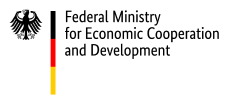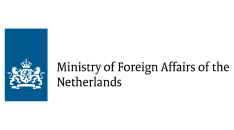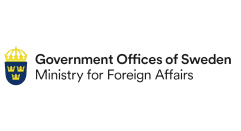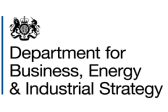Panamá
Member Since
DEC 2016
Partners Involved
FAO, UNDP UNEP, and the World Bank
With the execution of these new sectoral arrangements that we pursue in the medium term, every public or private initiative or activity developed in the country integrates climate as an intrinsic variable, from the early stages of the idea design and planning”
Milciades Concepcion
Panamá’s Minister of Environment
Panamá submitted its updated and enhanced NDC to the UNFCCC on December 28, 2020 after months of consultations across ten key sectors and robust technical work with increased ambition which has resulted in more ambitious climate pledges than the first NDC and reflects a commitment to carbon neutrality.
Panamá’s enhanced NDC, which includes 29 commitments across ten strategic sectors, drew support from the NDC Partnerships Climate Action Enhancement Package (CAEP) and other international initiatives. FAO, UNDP, UNEP, and the World Bank were the key implementing partners supporting the government through CAEP.
New and More Ambitious Mitigation Targets
As part of the new targets, Panamá enhanced its mitigation targets for the Energy and Land Use, Land-Use Change and Forestry (LULUCF) sectors. For example, its emissions in the energy sector will be reduced by at least 11.5 percent by 2030 and at least 24 percent by 2050 as compared to the business-as-usual scenario. This pledge is deeply anchored in a major national policy document, the Energy Transition Agenda. Energy transition will yield important benefits, for example the creation of up to 15,000 jobs if full decarbonization is achieved.
One pillar of the energy transition vision is e-mobility. Through CAEP, the World Bank has provided comprehensive support to the Government of Panamá, including the definition of an emissions baseline, mitigation potential of energy efficiency measures, as well as proposals for the replacement of government vehicle and the city of Panamá bus system for electric vehicles.
In the LULUCF sector, Panamá plans to restore 50,000 ha of national forests and this is expected to result in the absorption of around 2.6 million tons of carbon dioxide by 2050 on top of other benefits such as addressing biodiversity loss. To achieve its forest restoration goals over the next four years (by 2025) Panamá will be guided by its National Plan for Forestry Restoration and the Alliance for a Million Hectares, a public private initiative guiding these efforts.
FAO has been a key partner in this sector. They supported the government in calculating the emission factors for national GHG inventories, in a competitiveness analysis of the forestry reforestation fund at the national level and rationalization of different legal instruments affecting the sector.
The government is committed to go beyond the current targets and is already exploring innovative mitigation approaches such as blue carbon potential, thanks to the UNEP support. They are bringing expertise and building government and other key stakeholder capacities about IPCC GHG inventory preparation guidelines around blue carbon accounting to ensure that wetland and sea grass carbon reserves are considered as part of the country’s contribution to mitigation and inform in future climate actions on these ecosystems.
A Strong Focus on Adaptation
A major milestone in Panamá’s enhanced NDC is that for the first time it included adaptation priorities to design climate-resilient communities and eco-systems, developing risk mitigation measures in human settlements, public health and sustainable infrastructure sectors. This is particularly important for Panamá as it is considered highly vulnerable to climate impacts such as intense and protracted rainfall, floods, droughts, wildfires, tropical cyclones and Tsunamis.
UNDP’s support through CAEP has been critical. Through a participatory process that included private sector, women business groups, Indigenous Peoples and civil society, and the analytical work conducted through technical teams of specialists responsible for each sector or strategic area, key priorities for adaptation were defined and included in the revised document.

And Mainstreaming Climate across the Financial Sector
UNDP and UNEP, in a team with the Climate Change Directorate of the Ministry of Environment and the Ministry of Economy and Finance, are also supporting the incorporation of climate change into the public investment planning process, which will allow investment in climate finance to be reflected in the national budget. One area of action is to strengthen the MEF capacities in the evaluation criteria of public investment projects to include climate risk variables.
UNEP is also supporting a taxonomy for the banking sector which will include environmental, social and climate risk safeguards into banking system procedures. In parallel, UNDP is working with MEF in developing the climate risk, climate project, and climate finance tagging systems, and capacity strengthening for their widespread use.
Under a Clear Long-Term Vision
Panamá’s second BUR, published in March 2021, showed how the country is already a net carbon sink. Committed to keep this status, the country´s climate vision is guided by the carbon neutrality of each of the 10 sectors included in the NDC update and an inclusive, low-carbon, and climate-resilient sustainable development. The national government is committed to making this happen by developing key pieces of legislation and policies, establishing tools and mechanisms, and investing heavily in awareness raising with all segments of society.
In this sense, Panamá is developing its National Climate Action Plan with World Bank support for the enhanced NDC’s five-year implementation. It is an action plan aimed at implementing short- and long-term projects to meet their commitments.
Dr Ligia Castro, National Director of Climate Change, is determined: “We are looking to transform the way the national budget and public investment is done, so that there is not a requirement for the country to have incentives or taxes in place, but rather changes the way we work to address the climate crisis. So that what we today call sustainable investment, climate finance, green projects, become the norm, the way countries do their job”.
The NDC sets a strong foundation, but it is only one of many steps in the fight against climate change.






















